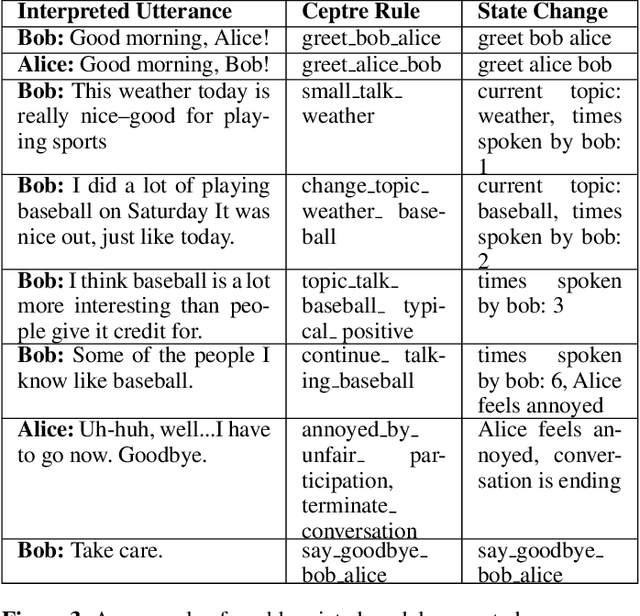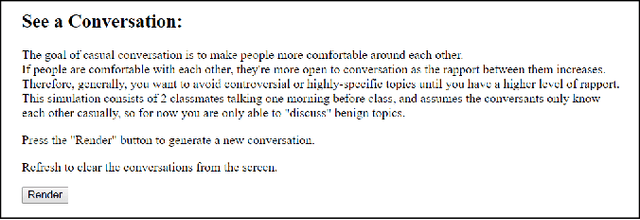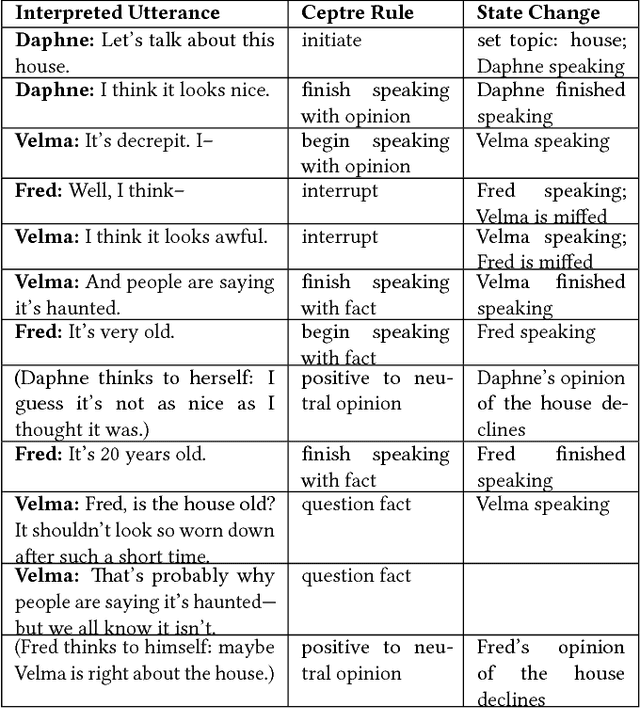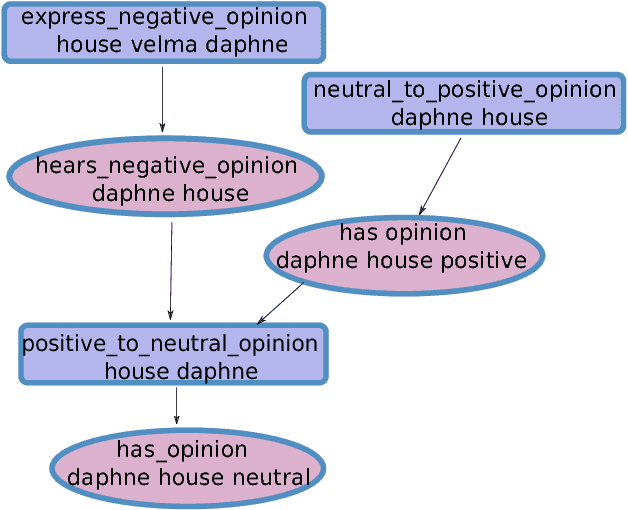Hannah Morrison
"How Was Your Weekend?" A Generative Model of Phatic Conversation
Feb 13, 2018



Abstract:Unspoken social rules, such as those that govern choosing a proper discussion topic and when to change discussion topics, guide conversational behaviors. We propose a computational model of conversation that can follow or break such rules, with participant agents that respond accordingly. Additionally, we demonstrate an application of the model: the Experimental Social Tutor (EST), a first step toward a social skills training tool that generates human-readable conversation and a conversational guideline at each point in the dialogue. Finally, we discuss the design and results of a pilot study evaluating the EST. Results show that our model is capable of producing conversations that follow social norms.
A Generative Model of Group Conversation
Jun 21, 2017



Abstract:Conversations with non-player characters (NPCs) in games are typically confined to dialogue between a human player and a virtual agent, where the conversation is initiated and controlled by the player. To create richer, more believable environments for players, we need conversational behavior to reflect initiative on the part of the NPCs, including conversations that include multiple NPCs who interact with one another as well as the player. We describe a generative computational model of group conversation between agents, an abstract simulation of discussion in a small group setting. We define conversational interactions in terms of rules for turn taking and interruption, as well as belief change, sentiment change, and emotional response, all of which are dependent on agent personality, context, and relationships. We evaluate our model using a parameterized expressive range analysis, observing correlations between simulation parameters and features of the resulting conversations. This analysis confirms, for example, that character personalities will predict how often they speak, and that heterogeneous groups of characters will generate more belief change.
 Add to Chrome
Add to Chrome Add to Firefox
Add to Firefox Add to Edge
Add to Edge